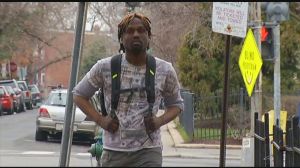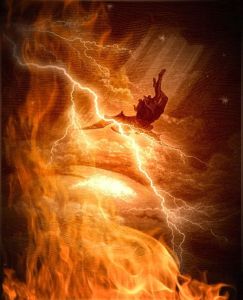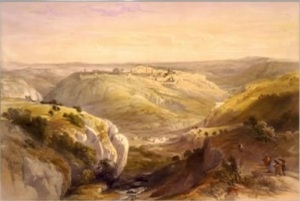Now Jesus was praying in a certain place, and when he finished, one of his disciples said to him, “Lord, teach us to pray, as John taught his disciples. And he said to them, “When you pray, say . . .” Luke 11:1
Luke mentions Jesus’ prayer life more than any of the gospels. Jesus prayed continually, sometimes all night. This probably wasn’t unusual for a holy man; the Baptist was known for prayer as well, and it would have been natural for a holy man’s disciples to seek instruction on prayer from their mentor. How did John pray? What did he teach his disciples? And what about the prophets of old, or the revered rabbis between Old and New Testaments? Wouldn’t it be interesting to have a comparison of the ways they prayed, and pick and choose from the best?
Interesting, yes; instructive, probably not. There is no training on prayer in the Old Testament; only plentiful examples of, from Moses and David and Asaph and Solomon and nameless writers of the Psalms (also known as God’s prayer book). Our instruction waits for the Master himself, and we can be grateful to the disciple who asked. But even more grateful to Jesus for answering.
This is his prayer. It’s not only what he asked, but what we should ask in imitation of him. As a godly mother or father takes their toddler’s hands and puts them together and frames the thoughts in the minds of their little one, imagine Jesus doing the same for his followers, who don’t realize how immature they are. And for us:
Father:
(One mind-blowing word to start with: no YWHW, no Blessed One, no El Shaddai or Yahweh Sabbaoth—just “Father.” He’s used that term a lot; perhaps they are used to it by now. But NO one in the old days referred to God that way. Jesus is the only one who has a right to, and now he is quietly, clearly, passing that right on to us.)
Hallowed be your name.
(Devout Jews would have been fully on board with this, but does it seem strange that “hallowed” follows directly after “Father”? Did the terms seem mutually exclusive to them? Probably not as much as to us, because this was, as the saying goes now, a “paternalistic society.” Fathers naturally got respect, whether or not they deserved it. But respect is not “hallowing.” Within a few words we are plunged into the paradox of a holy being infinitely removed from us, yet immanently near. Our God was always like this; a still, small voice in a consuming fire, who spun the universe out of love and is calling people into that love. “You will be my people and I will be your God” now condenses into one simple word: Father. But still hallowed, still vast and holy and so far above us that the only way to him is through the one who is now folding our hands to pray.)
Your Kingdom come.
(Yours, not ours. The disciples would have nodded happily at this because of the kind of kingdom they expected. They were in for a shock. And so are we, when our kingdom plans don’t match up with his.)
Give us each day our daily bread,
(Of course; this is the food prayer we are accustomed to making around the dinner table, and one the disciples would have been familiar with. But we seldom realize how deep it our need just for simple necessities.)
and forgive our sins—
(That one might have raised a few eyebrows: What, just by asking? No penance, no sacrifices, no rending of garments?)
—for we ourselves forgive everyone who is indebted to us.
(Wait—just like that? What happens to justice? Who pays the debt?)
And lead us not into temptation.
(That’s reasonable, for any honest man will admit to being tempted. The trouble is, they don’t always recognize temptation when they see it. And we don’t either.)
This way to pray would have caused some startled looks among them. But they probably didn’t catch, at the time, how revolutionary and re-orienting the prayer was. We have the opposite problem: from countless repetitions the payer has lost its potency for us. But it’s just as revolutionary. And re-orienting.
We may cheerfully agree that his Kingdom is not ours, even while building church kingdoms and family kingdoms and career kingdoms for ourselves. The gloss added by Matthew—Your will be done—implies our will is hereby dethroned.
We’ve given it up. We also given up he right to take credit for earning our bread, just as we can take no credit for the motion and maintenance of every cell in our bodies. And we can’t earn forgiveness either; it’s an unpayable debt that must be canceled, as we are required (not asked, but required) to cancel the petty debts owed to us. As for temptation, it lurks in even in the most hallowed places and stretches its jaws for us when we are feeling most pious. We are not the mature self-determining creatures of fond imagination; we are willful little children who continually need to be straightened out.
The good news is, he’s our Father. He’s more than willing to straighten us out, and desires more than any earthly father to give us good things. To give us the best: our daily bread, our daily pardon, and that kingdom he’s building.
Pray this prayer continually, and you will be reoriented.
For the original post in this series, go here.
Next>










